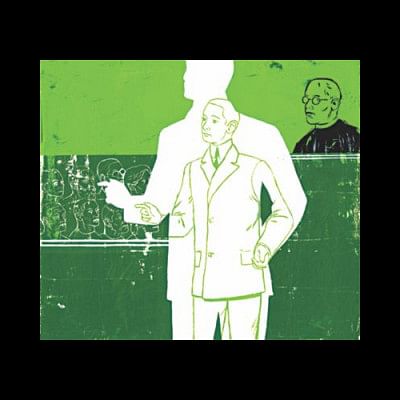For a desirable prosecution service

This newspaper has very rightly commented that the government's decision to start a permanent prosecution service by employing professional lawyers is a welcome move. In every criminal prosecution, the State is the complainant on behalf of the aggrieved people and it is thus only proper that public interests do not go by default on account of extraneous factors.
It needs to be brought home that not merely is the office of Public Prosecutor a public office, but one of considerable significance for the integrity and efficiency of criminal justice. Anyone appointed to this office must, in the interest of the public, have a high degree of efficiency, and knowledge of the law of crimes and the criminal procedure; he must have the character and integrity that are irreproachable and above suspicion; he must have a sense of duty to the public and to the Code as overriding considerations. As can be immediately realised, if these requisites are lacking, the incumbent to such an office can gravely injure the administration of criminal justice.
The ideal Public Prosecutor is not merely concerned with securing convictions, or with satisfying the government with which he has to be in contact. He must consider himself as an agent of justice, his discretion to apply to the court for its consent to withdraw from any prosecution, is a vital one. It is in the interests of the State and the public that any selection to such an office must be based on the most pertinent considerations, without prejudice or favour, and that only the best candidates should be appointed.
The Public Prosecutor being an officer holding public office is responsible to conduct the case. He acts as machinery to assist the court in deciding the guilt or innocence of the person. No other person can be allowed to interfere with the case in disregard to the position and functions assigned to the Public Prosecutor.
The Public Prosecutor, though an executive officer as stated by the Privy Council is, in a larger sense, also an officer of the court and he is bound to assist the court with his fairly considered view and the court is entitled to have the benefit of the fair exercise of his function. It also needs to be appreciated that in our country the scheme of the administration of criminal justice is such that the primary responsibility of prosecuting serious offences (classified as cognizable offences) is on the Executive authorities.
For the Public Prosecutor to apply an independent mind and exercise his discretion. In doing so, he acts as a limb of the judicative process and not as an extension of the executive. The court has to be satisfied that the Public Prosecutor did not yield to the directive of the executive but made an independent study of informing himself of the materials placed before the court. In instances where this happens, the apex court would hopefully agree with the submissions of the Public Prosecutor.
The Public Prosecutor is not expected to do what the State directs because he owes allegiance to a higher cause. Despite his undoubted duty to his client, the State, he may disregard his client's most specific instruction if they conflict with his duty to the court to be fair, independent and unbiased in his views.
It is certainly refreshing to hear that there is intent to meet the long-standing demand for staffing the prosecution system with professional lawyers. We will have to wait to see that loyalty to the party in the power does not remain the main criterion for appointment as Public Prosecutors.
The purpose of a criminal trial is not to support a theory but to investigate the offense and to determine the guilt or innocence of the accused; and the duty of a Public Prosecutor is to represent not the police but the State, and his duty should be discharged fairly and fearlessly. The Public Prosecutor has to aid the court in discovering the truth and also in the discharge of its duty to do justice as between the State and the accused.
Keeping in mind the issue of ensuring desirable prosecution service, the importance of establishing an apolitical prosecution service or cadre can no longer be brushed aside. Criminal prosecution cannot be regime centric. We may follow the Crown Prosecution Service modality as in England or adopt the District Attorney system as practiced in United States. The priority, however, is on delinking the prosecution from political executive's control.
The honour and dignity of the office of Public Prosecutor as statutorily stipulated have to be ensured by means of substantial injection of resources along with professionalism of highest order. Political partisanship shall have no place in it as favours to party faithful would inevitably mean the prejudicing of the integrity and efficiency of criminal prosecution.
Along with the above, the deficits of proper investigation have to be removed. The investigators have to understand the true import of legally proper and tenable investigation. In specific terms, they cannot be disposed towards submitting charge-sheets without correctly ascertaining the facts and circumstances of the incident under examination. Investigators must be subject to proper supervision. Adequate investigative skill development training is a must along with influence-free recruitment of investigating personnel.
Muhammad Nurul Huda is a former IGP and a columnist of The Daily Star.





Comments